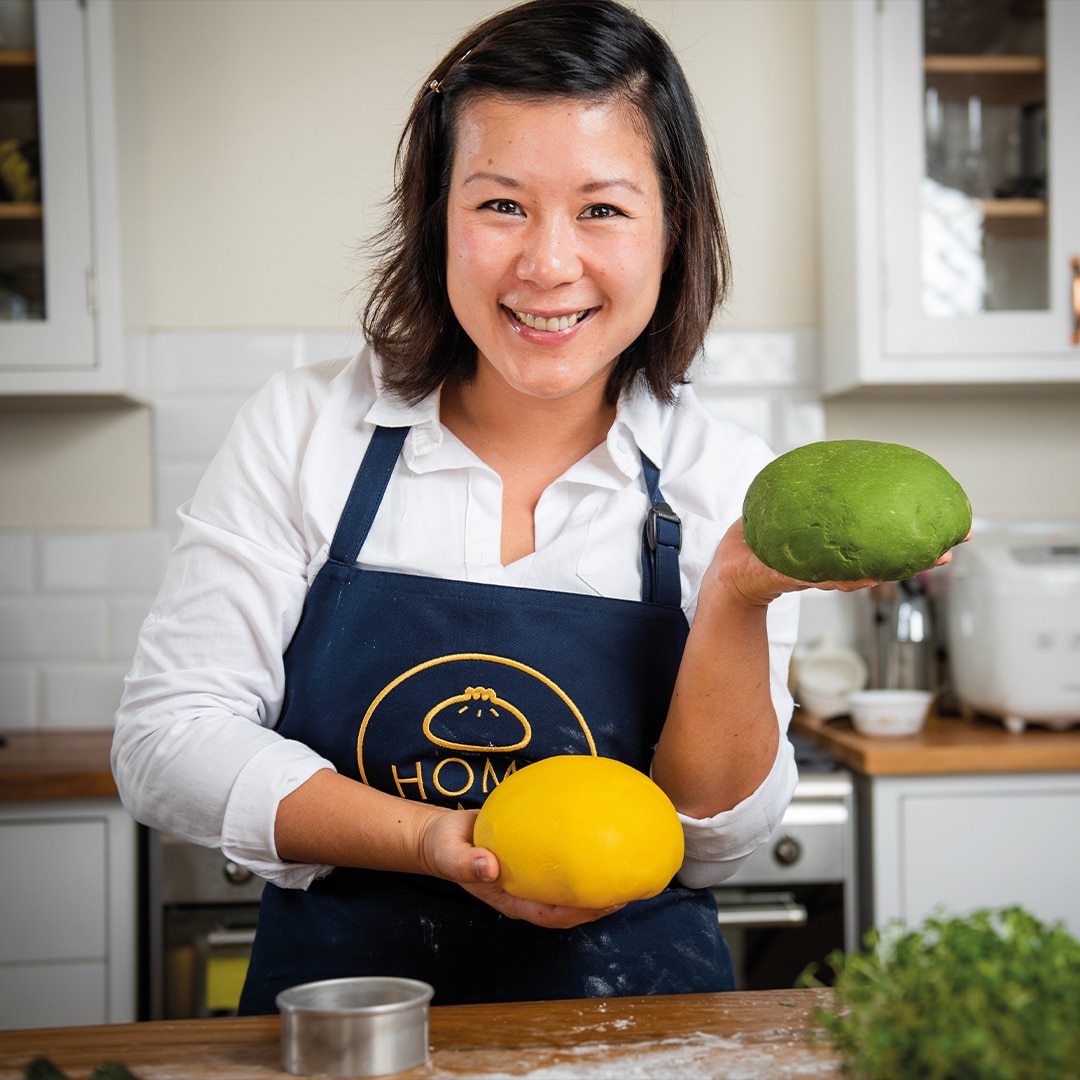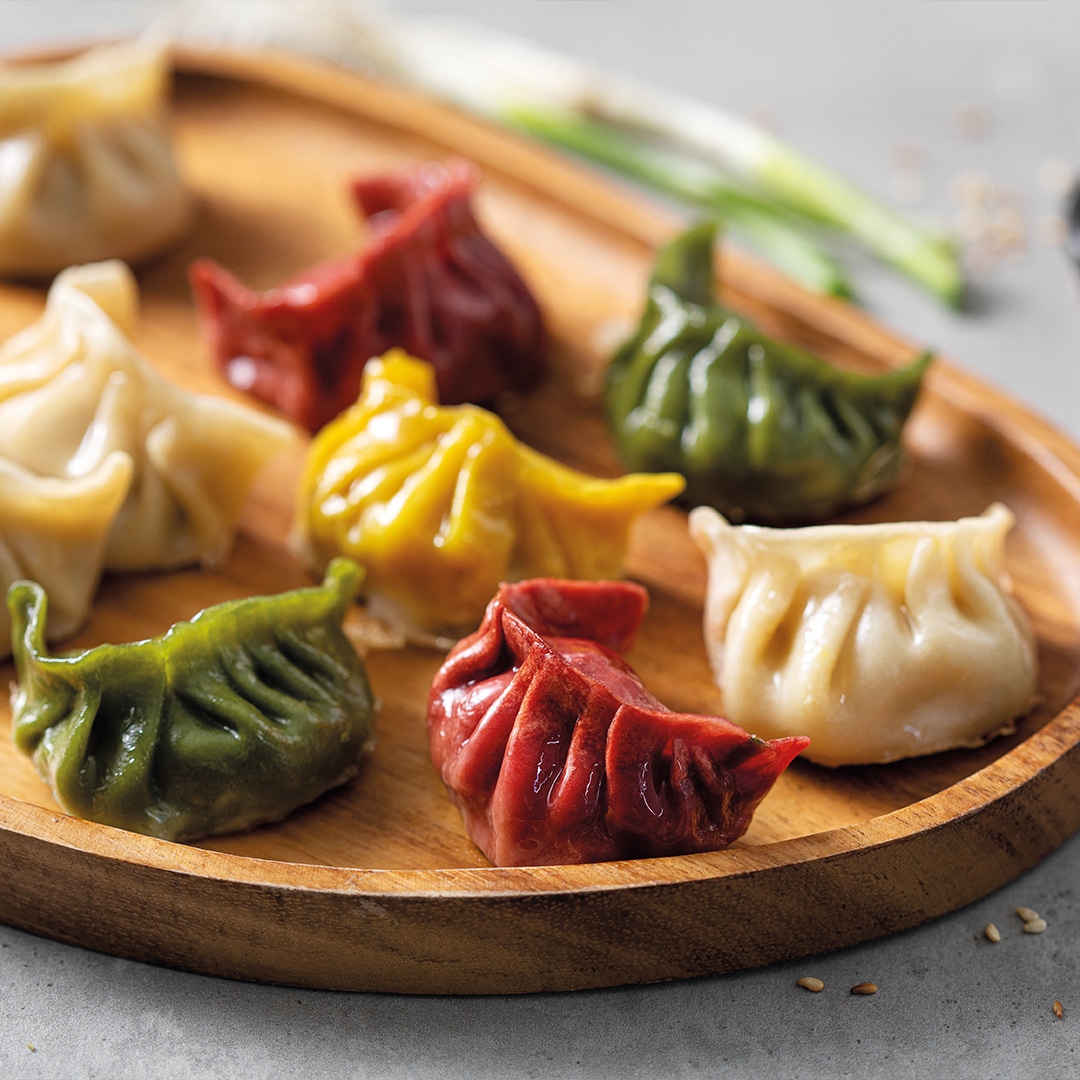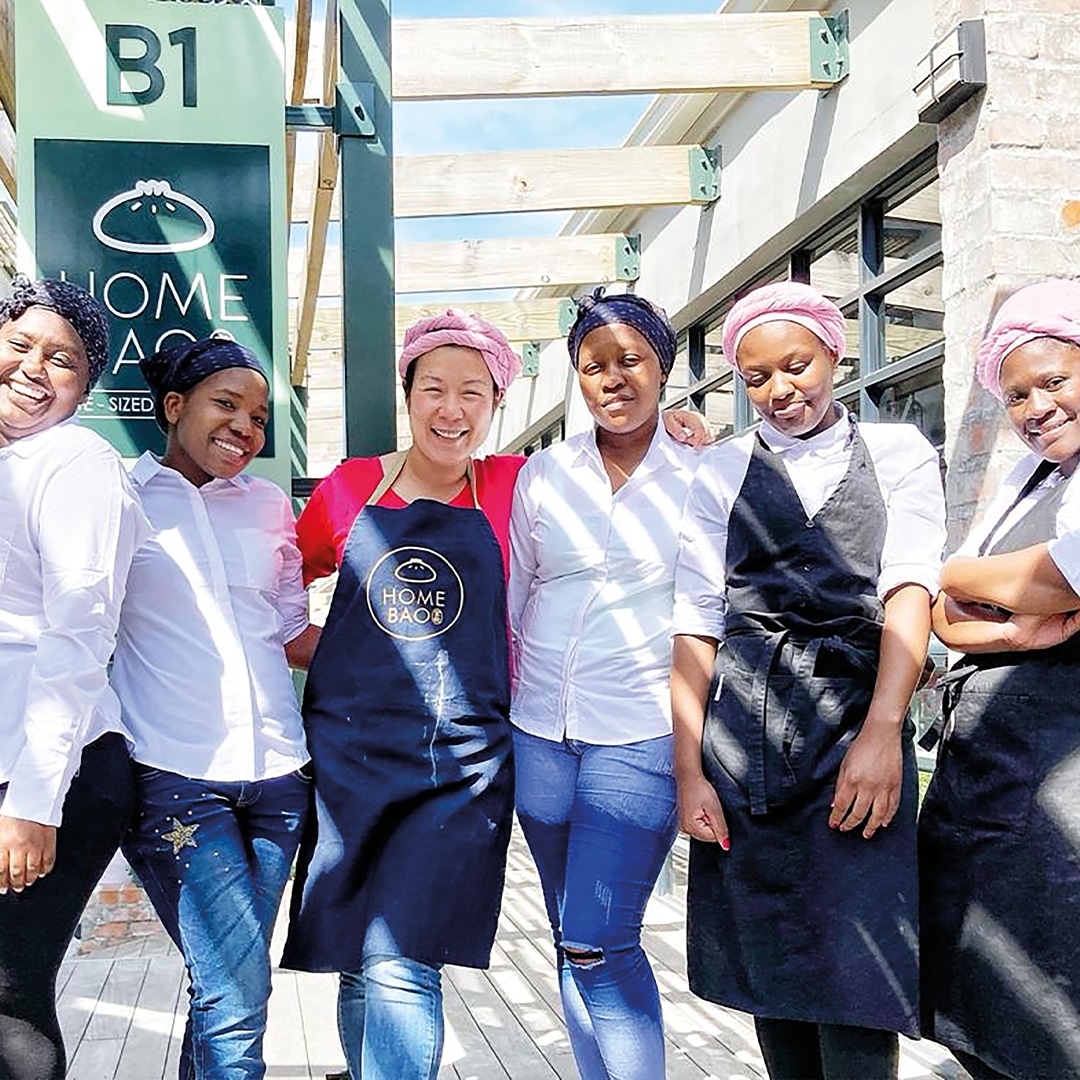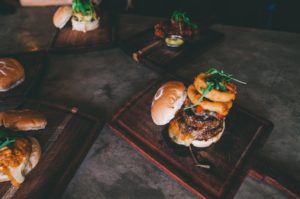Dumplings are destined to become the next sushi, believes entrepreneur Tina Long. Christi Nortier chats to her about why they’ll be the next big thing – and how to make a party out of it.
“A lot of people look at me and go: ‘Home Bao’s recipe must be from your maternal or paternal grandmother. It must be some old, ancient Chinese recipe that you learnt in your grandmother’s kitchen’. Unfortunately, I did not get that,” shares Tina Long, the founder of frozen dumpling producer Home Bao. In just seven years, Home Bao has grown to stock 58 retail stores around the country – and counting.
Tina’s dumplings are filled with something just as rich: her South African upbringing, a knowledge of science, rubbing elbows with Taiwan’s street vendors and raising two kids as an entrepreneur. The way dumplings are made and enjoyed is evolving, and she’s making sure the wave of change reaches South African shores – and does good along the way.

It started with an onion
Born in Taiwan, Tina and her family immigrated to South Africa when she was eight years old. “My parents decided to do something really wild,” she chuckles. “They went to the local church, found the friendliest couple and asked if they would be interested in looking after their child. We all had tea together and a few months later I moved into their house.”
Here, she found a new take on food. “My biological mother doesn’t cook at all. Her food was quite bland and healthy, with just a bit of soy sauce. Mommy, as I call my South African mom, was Afrikaans and Daddy, my South African father, was English. So Mommy’s dishes were tomato-based and rich; she started by frying onions. That aroma would tell me it’s five o’clock and cooking time,” she recalls. “I’d go downstairs to see what she’s doing. I was fascinated: It was like nothing I’d ever experienced. I couldn’t believe a simple onion could turn into a beautiful dish we’d all enjoy. That’s what sparked my interest in food.”
But there was an obstacle. “In most Asian families, and especially in mine since I have over-achieving siblings, you have four choices: Become a doctor, a lawyer, an accountant or a failure. So I chose the failure route,” she laughs. “You must have a degree, and since I didn’t get into those subjects, I did biochemistry out of desperation. But I loved working with food, so I moved to dietetics because it was the closest thing to that.”
Then life revealed another unexpected interest: building a business. “I worked at a start-up, which prescribes your diet based on your genetic expression. I learnt how to build a business, which eventually helped me with Home Bao,” she reflects. “That was my last job before I resigned and went back to Taiwan to be with my dad.”
In 2018, Tina moved to Taiwan to be with her father Lee Hao-Sen as he was treated for lung cancer. Juggling hospital visits and crèche pick-ups meant dinner was reaching for the closest street vendor. Although delicious, it wasn’t the healthiest. “It wasn’t long until I began desperately searching for an alternative that was quick to prepare, met the dietitian-mom standard – and that the kids were happy to eat,” she says. Enter: Frozen dumplings.
Tina explains that Taiwanese supermarkets have walls lined with freezers, all of them filled with frozen dumplings. They even come in 5kg bags. She explains that her grandparents’ generation still make dumplings by hand, but that now Taiwanese families gather to enjoy frozen dumplings – filled with beloved flavours, the nutrients they need and a 10-minute prep time. Although it is sad to lose a tradition, dumplings remain something Taiwanese children grow up eating, she explains. Even now, her kids and husband can’t wait for dumpling night, even though Tina is totally “dump-ed out” by now. The seed was planted to recreate this delicious, quality convenience at home…

Bringing home the bao
“My dad fought bravely for the next two months and sadly passed away in December 2018. His last words were: ‘If you live without fear, then your death is without regrets’.
I decided to follow those words and be fearless! In honour of Dad, I created Home Bao,” she shares.
Tina attended a dumpling-making school and volunteered at a street vendor market. “It was gross: Blood, sewerage, bad smells,” she laughs. “But I saw them whip up beautiful dishes on the side of the road with no fancy kitchen or equipment. I learnt to create flavour from nothing. It’s such a beautiful environment to work in because your fresh produce suppliers are right there.”
The next year, she got down to the business of setting up Home Bao. She tapped into a network of Cape Town urban farmers, tested out recipes and made orders from her garage. South Africans responded well to the authentic flavours, which gave Tina the confidence boost she needed to launch her first commercial kitchen. But six weeks later, the Covid-19 lockdown started. Within two weeks, the business pivoted to an online store. In hindsight, this gave Home Bao major exposure to new clients. “Everyone was at home and willing to try something new. Suddenly, telling them to cook dumplings didn’t seem too much of an ask, so we got a lot of new customers,” she reflects.
Customer education is an ongoing process, with in-store tastings designed to change people’s perceptions about Taiwanese food. “About 20 years ago, someone brought sushi into South Africa and overcame people thinking it’s horrendous to eat raw fish. Now, there’s a sushi place on every corner yet no one knows who introduced it here,” she explains. “We think dumplings will be the next sushi, but we want people to remember it was Home Bao who led the way. My vision is for there to be a box of frozen dumplings in every South African household in 20 years’ time. Our job as the market leader is to make the pie bigger. Competition is very good because it means the market exists and is growing.”
In 2024, Tina took Home Bao to the small screen as a Top 20 contestant in MasterChef South Africa, making it to episode five. She wowed the judges with her pepper steak pie, winning that challenge, which she says was a highlight – and having access to every kitchen gadget imaginable. “It’s amazing to cook alongside such excellent chefs, but the pressure is huge. To win, you not only need great culinary skills but you have to withstand that pressure. What really got to me was being away from my family, having the camera on me all the time and not knowing what the next challenge would be,” she reflects.

My vision is for there to be a box of frozen dumplings in every South African household in 20 years’ time
A new tradition
Tina expects that as dumplings become more popular, more restaurants will serve them, which means dumpling-makers will be in demand. “I want to create a Home Bao dumpling-folding school that trains underprivileged chefs. Imagine you can’t afford to go to a smart culinary school, but you can go to a dumpling school and learn this beautiful skill. You can apply for jobs with a higher salary. The sushi chefs work their way up from the bottom but once they have the skill, they’re in demand,” she explains.
She recalls how Keane, a new matriculant, came to her kitchen as an intern years ago. He worked hard and learnt all he could, which got him onto the permanent staff. Within three years, he was their head chef. He went to Capsicum Culinary Studio on a scholarship and was able to join his sister in America. “Keane made me realise that this can do a lot more than just change the food scene and people’s perceptions. There’s a lot of livelihoods that can change because of this,” she shares. “It makes coming to work a really happy thing.”
By: Christi Nortier
Photographs: Supplied



